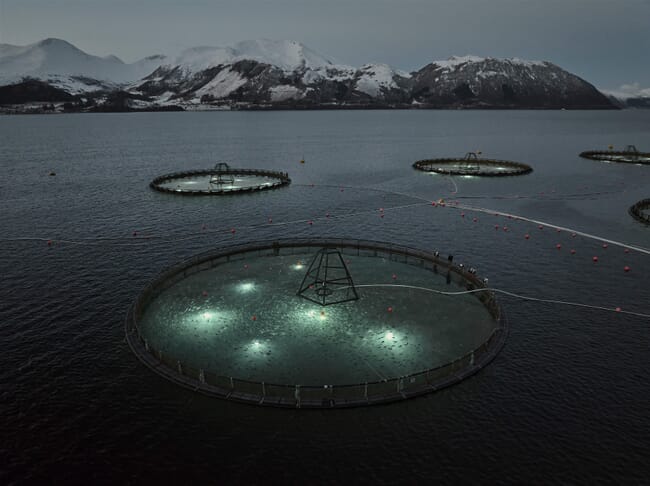
Results for the LuxCod project demonstrate that the correct use of light management enables control of sexual maturation in farmed cod © Ode
The LuxCod project – conducted by researchers from Møreforsking in collaboration with Norwegian cod producer Ode – focused on measuring the continuous light management in fish pens to understand its effects on cod maturation. The primary objective was to document how light management influences cod maturation and whether it can avoid early maturation during the farming period.
The results of the study demonstrate that light management significantly delays sexual maturation in farmed cod. This delay enables the avoidance of maturation throughout the entire production period. Early sexual maturation in farmed cod represents a significant economic and production disadvantage, resulting in increased mortality, lower growth rates, and reduced quality. The Norwegian Institute of Marine Research (IMR) has also highlighted the potential risks of sexually matured farmed fish spawning in pens and impacting wild cod in the surrounding area.
The researchers closely monitored the production process over time, systematically sampling fish through the cycle with average weights up to 5 kg after 21 months production. The study documented the effect of light management through gonad maturity, with the findings demonstrating that the correct use of light management enables control of sexual maturation in cod. This valuable knowledge has the potential to significantly improve the aquaculture industry, ensuring enhanced fish welfare, high quality products and low ecological risks in open-pen farming.
“This is an important breakthrough for the entire cod farming community and proves our potential to grow to a large share of the seafood category. It has been important to document these findings through scientific studies. It gives both the authorities, the customers and the entire public domain the facts supporting our sustainable and important food production capabilities”, said Ola Kvalheim, founder and CEO of Ode, in a press release.
Kvalheim expressed enthusiasm for the research findings, highlighting the potential for cod farming to contribute to sustainable production of healthy proteins. “The world is currently grappling with food inflation, heavily affecting households world-wide. Our current protein and food supply problems will be insignificant compared to a failure to deliver on the doubling of protein production by 2050.”
He concluded: “The forecast by the United Nations of a doubling in the protein demand by 2050 will require bold changes as we also know that our current protein production makes up 25 percent of total global CO2 footprint. Farmed seafood can answer both these challenges.”




